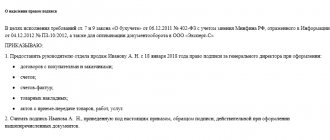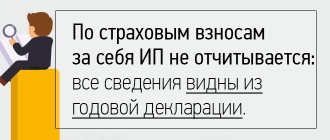In recent years, the number of donors has increased significantly. Donating blood, plasma, and other cells becomes an honor. The state strives to encourage such initiatives - doctors receive the necessary material for treatment and recovery, patients have a chance to recover and save their lives. Citizens and employers often have a number of questions about voluntary blood donation: how much time should be given for this, how to process it and pay for it. Donor days are established by the Labor Code in Article 186, which specifies the main provisions for the provision of rest and payment for it.
Art. 186 Labor Code of the Russian Federation: questions and answers
Art. 186 of the Labor Code of the Russian Federation establishes social support measures for donors in cases where blood and its components are donated. Issues that arise when implementing these measures are discussed in this material .
What legislative provisions are supplemented by Article 186 of the Labor Code?
How should blood donation (or the fact of undergoing examination) be documented?
What is the procedure for providing rest days in connection with blood donation?
How do I pay for additional free days?
https://youtu.be/GiJ75GM0JKI
What documents must be provided to the donor?
Everyone who is preparing for the sampling procedure for the first time asks himself the question: how is the donor day paid? According to existing standards, payment for 2 days based on the results of blood donation is possible if you provide a certificate in form No. 402/u to the HR department of the enterprise. It is issued by the staff of the transfusion station.
It is mandatory for the donor to notify management of the upcoming procedure. This will enable the employer to take any measures to solve professional problems in the absence of this employee.
What legislative provisions are supplemented by Article 186 of the Labor Code?
Article 186 of the Labor Code of the Russian Federation complements the complex of supporting and incentive measures for donors established by the Law “On Donation” dated July 20, 2012 No. 125-FZ. The Labor Code regulates the rights of the donor employee and the employer’s obligations regarding the provision of additional days off from work:
- on the day of donation of blood and its components;
- the next day after delivery;
- while undergoing a medical examination before delivery.
And also in terms of payment for such free days, based on the employee’s average earnings.
Other rights of donors are listed in Law No. 125-FZ. At the same time, the Federal Law “On Donation” establishes differences for those who donate blood free of charge or for a fee, as well as for honorary donors. For example, those who donate blood for payment are not subject to social guarantees provided for in Art. 22 No. 125-FZ - free meals on the day of delivery and benefits for sanatorium treatment in the future.
IMPORTANT! In terms of the requirements established in Art. 186 of the Labor Code , no special reservations have been made about whether blood is donated free of charge or for a fee. Therefore, when applying the article, it should be assumed that the Labor Code norms are the same for everyone donating blood.
What to do if you have a conflict with your employer?
Not all employers are aware of employee rights. For example, an employee who did not notify of his absence, when reporting to work, may find out that he has been assigned absenteeism and is threatened with dismissal. In this case, you can safely contact the labor inspectorate with certificates confirming donation. The employer cannot:
- Establish absenteeism for the dates of blood donation and carry out disciplinary sanctions in connection with this.
- Refuse accruals in favor of the worker.
- Refuse to issue a day off.
This is important to know: Judges' vacation: number of days
All these are serious violations that can and should be combated.
How should blood donation (or the fact of undergoing examination) be documented?
Upon documenting the fact of donating blood and undergoing the medical examination necessary for this, the medical institution must issue the employee, and the employee must provide the employer with:
- certificate in form No. 401/u - in case of passing an examination for the possibility of donation;
- certificate in form No. 402/u - in case of donation of blood and its components.
Both forms of certificates are annexes to the order of the USSR Ministry of Health dated August 7, 1985 No. 1055. Despite numerous reforms in the healthcare sector, the provisions of this order regarding documenting the activities of blood services are still considered valid. The Ministry of Health and Social Development of the Russian Federation periodically confirms this in its official explanations (see, for example, letter “On the procedure for using medical documentation forms” dated April 28, 2011 No. 1986-12).
However, along with the above documents, the order of the Ministry of Health and Social Development dated May 2, 2012 No. 441n “On the procedure for issuing certificates by medical institutions” also applies. Clause 10 of this procedure states that certificates can be issued in any form, the main thing is that they contain the necessary information and details (which are listed in order).
Thus, both certificates in form 401/y and 402/y, as well as certificates confirming a medical examination and blood donation in free form, should be considered valid. In this case, certificates in free form must be issued taking into account the requirements established by Order of the Ministry of Health and Social Development No. 441n.
Payment and provision of donor days in 2020
- fill out the form and register;
- verify your identity using a passport;
- inform the doctor about all diseases and surgical interventions that have occurred to him in the last six months;
- undergo a medical examination;
- donate blood from a finger prick to determine its characteristics: group, hemoglobin level and others.
Donation is permitted only to legally capable citizens.
- If you need to donate blood urgently, then it is not necessary to inform management about going to the hospital. Proof of the manipulation performed will be a certificate in the form:
- No. 401/u - confirms the fact of a medical examination;
- No. 402/у - material selection.
We recommend reading: Transport tax benefits for pensioners in Moscow
Missing work in this case is not absenteeism. But be sure to get a certificate from a medical institution and present it to management.
- If the selection was made during sick leave or any vacation, then this day is not a day off and is not paid. But the employer is obliged to give the person one more (that is, second) day off.
- If your superiors do not allow you to leave work to donate blood, your opinion can be ignored. In this situation, the law is on the side of the person who decides to help his neighbor.
A mandatory act is to inform management about the fact of donation by providing a certificate. It should be given to the personnel officer for accounting.
What is the procedure for providing rest days in connection with blood donation?
As a general rule, release from work is due directly on the day of blood donation and the next day. This is due to the fact that the donor's body needs rest to recover after the procedure.
At the same time, Art. 186 of the Labor Code allows the transfer of additional free days at the request of the employee. And this aspect causes the greatest number of controversial situations in practical application. For example, an employee did not show up for work on Monday, but on Tuesday presented a certificate of blood donation on Sunday. Does the employer have the right to register Monday as absenteeism? Or, on the eve of the vacation, the employee provided a certificate of blood donation with a request to add these days to the vacation - what should the employer do if the main vacation has already been calculated and paid within the time limits established by the Labor Code (3 days before the start)?
Since there are no special provisions on such issues in the current legislation, we can only formulate general rules for providing additional days off in connection with blood donation, based on practice:
1. If the donor is engaged in work with harmful (dangerous) working conditions, the transfer of additional days of rest is not allowed.
Read more about special working conditions in the material “What refers to harmful working conditions (nuances)?”
2. The employer is obliged to provide the donor employee with days off within a year from the moment of blood donation, and at the employee’s request, not only the transfer of the day off must be carried out, but also the choice of the date to which it should be transferred.
3. The employee must notify the employer in advance in writing:
- about passing a medical examination for the possibility of donating blood;
- donating blood;
- your desire to transfer the required additional days of rest;
- about how and when he wants to use these days.
Rules for registration and use of donor days according to the Labor Code of the Russian Federation
The donor employee must provide the manager with an application for vacation days plus documents on passing a medical examination and donating blood.
In order to receive donor days, an employee may not write an official application addressed to the manager, but simply warn about a possible absence orally. In turn, the manager does not have the right to refuse an employee to visit the donor center or independently choose the date of blood donation.
If the manager nevertheless denies the employee such an opportunity, the employee can take any day to donate blood at his own discretion and this will not be considered absenteeism. Since the visit to the medical center will be recorded with appropriate documentation.
If the examination and blood sampling take place on the same day, then it is enough to take one certificate, on the basis of which to write an application for an additional day of vacation indicating the desired date.
As we have already said, if an employee adds preferential days to vacation, then he has the right to take them off along with the vacation, or receive compensation for them as for the unused part of the vacation. This entire process is recorded by a special order, since according to the law, donor days do not qualify as additional paid leave.
If you change your place of work to another after donating blood, then the management of the new organization is not obliged to allow and pay for preferential days for rest.
Proper registration of donor days is just as important as registration of regular leave, so be careful not to make mistakes and avoid problems with employees and services that control this process.
There are more people who want to become donors than those who actually become donors. And this is not due to laziness or fear of some citizens (although this also occurs), but to restrictions due to medical parameters.
In particular, you cannot become a donor if you have suffered from certain diseases. There is a list of diseases that ultimately affect both blood and plasma. Moreover, you cannot submit the necessary material even after a common cold, if several weeks have not passed since recovery.
In this regard, before taking the test, all citizens, without exception, undergo a quick medical examination, where their blood is taken for testing and the necessary information about the person’s health is obtained from it.
Passing a medical examination before passing the test is provided for by law and without it you cannot pass the test, and, accordingly, receive well-deserved rewards in the form of payment of money and DD.
In any case, if a person wants to take a test at a medical institution on a working day, he must be guided by the provisions of the Federal Law No. 125, which states that the worker does not need to obtain permission from his superiors to carry out his social duty.
That is:
- You can do without an official statement.
- You cannot be absent from duty without a good reason, so it is allowed to limit yourself to a verbal warning from management about the absence.
After passing the test, excused absence will be proven by a certificate numbered 401/у about passing a medical examination.
Legislators prudently allocated a large amount of time for the medical examination, since health examination is not a quick process: it is necessary not only to go through the necessary doctors, but also to take tests, and also wait for the result.
Labor Code Art. 186 states that the direct responsibility of the employer is to pay for the day allocated for a medical examination, therefore many employers force their subordinates to register everything as administrative donor leave. It is illegal. You can even resolve the situation in court, because this is a violation of human rights.
The medical examination is paid because it is directly related to passing the test. Therefore, it has a direct bearing on civic duty.
Employers, by the way, can also be understood. On the day of the medical examination, the citizen did not show up at work. In fact, he did not bring profit to the organization, and he needs to pay for this day from his own budget (not from the state).
The same Article 186 of the Labor Code of the Russian Federation states that a citizen is exempt from performing direct work duties on the day of handing over the work permit without agreeing on this decision with his superiors. The latter confirms the fact of oral notification of management about an excused absence from the official post, which will then be confirmed by a certificate of form 402/у. Without this document, you will not be able to pay for a missed day or get additional time off.
Again, no document on absence is drawn up. It is only marked in the entry/exit log with the letter “G” and a number that indicates the length of the citizen’s shift on the day the check is handed over.
If on the same day an employee went to work instead of taking the required rest, it is better to document this separately, because in some companies, payment for rest and payment for work of the same person may differ.
The person then needs to write a request in the application form to allow him to perform his duties from a certain hour of the work shift after submitting the necessary material. If the employer does not object and imposes an appropriate resolution, then the hours that the employee works until the end of the shift will be paid in accordance with the tariff system provided by the company, and not at the average rate.
This document is also required to ensure that the employer and employee do not have disputes regarding leave for blood donation, which can be managed independently. The statement confirms that the employee worked on such and such day and did not use it as legally granted time off.
If the company has at least one employee who submits the certificate, then it is better to create a separate accounting book, which will reflect all the dates of the certificate, the numbers of certificates issued and the facts of using the received time off. Then the relationship between employer and employee will be extremely transparent and honest, because everything will be recorded and taken into account.
It would also be useful to fix the conditions for using DD at the level of the company’s internal rules. This is not prohibited by law. For example, you can oblige an employee to implement the DD immediately after passing the work report or add it to the vacation. It is strictly prohibited to deprive an employee of DD.
Important
On the day you donate blood or undergo a medical examination for subsequent donation, your employer is obliged to release you from work. You also have the right to receive an additional day off work.
Thus, the employer provides the employee with two days off: one to donate blood or undergo an examination, the second as a benefit issued by the state for donation. The rules established by the Labor Code oblige the employer to allow the employee to take part in the donation.
You will definitely be given time off, since the law strictly prohibits refusing donors. Time off for donating blood is fully paid. It is worth carrying out preliminary approval, otherwise the employee’s failure to appear will be equated to absenteeism, for which disciplinary liability arises.
Home/Time off/For donating blood The shortage of donor blood is one of the social problems in Russia. But every third person needs it at least once in their life.
Info
In order for it to always be at hand, at least 2.5% of the country's population must be regular donors. For your information, Russian labor legislation provides benefits for workers who wish to share their blood free of charge to save people.
One of these privileges is paid days off in the form of time off. Donor benefits Law 125-FZ of 2012 lists the following benefits for donors:
- free food on the day of donation (this includes meat, red fish, dairy products, chocolate); lunch can be replaced with food: caviar, juice, fish.
Attention The law prohibits replacing donor food with monetary compensation.
Is time off for donating blood?
Working people who want to become donors in 2020 are wondering whether they can get time off to donate blood and what is recommended to do to complete the corresponding application.
The donor is entitled to social guarantees, payments on the day of absence from work, days off and registration in the report card.
What does the law say?
The activities of the state and the norms of Russian legislation contribute to the development of blood donation in the country.
People who donate blood or its components are provided with certain rights, guarantees and responsibilities.
How many days do they give for donating blood?
According to the law, a citizen has every right to one additional day off on the day of donation or on any other day at his own request.
How to apply?
Registration of time off and receipt of a day off depend on several conditions:
- on what day was the blood donated;
- when an employee wants to take a day off;
- what are the features of his work activity?
- The day off is combined with a guaranteed day off when writing the appropriate application if the day of blood collection falls on an official working day.
- To receive a day off on any other day, in addition to an application from an employee to grant him a day off in connection with the implementation of donor functions, a donor certificate in form No. 402/u will be required; an application for time off is not required.
- In order to avoid difficulties with granting a day off or time off from work, the employee is recommended to notify the employer in advance, at least one day before the proposed medical examination and blood collection or one day before the desired day off.
- It is worth noting that labor legislation does not oblige an employee to notify the employer in advance.
Designation in the donor days list
Employers are often concerned with the question: how to register the absence of an employee on the days of blood donation in order to avoid questions arising in the future, how to register donor days in the time sheet? A certificate in form No. 402/u, which confirms that a citizen has donated blood, is sufficient grounds for the citizen to be released from work. However, it is advisable to issue an order from the employer to release the citizen from work due to the fulfillment of his public duty (donating blood) and passing a medical examination. This is necessary to record the employee’s absence and correctly fill out the time sheet.
What days are considered donor days?
In situations where the donation took place during working hours and the person did not show up for work, he is given one day off to recover.
If, after submitting the biomaterial, the employee continues to work, then he is also given substitute time off for that day. Over the course of a year, a person can donate whole blood no more than 5 times, and plasma no more than 12 times. As a result, a donor of biomaterial can receive a maximum of 24 days off per year.
We remind you! You can have your situation assessed by a lawyer - it's free! Call!
When answering the question of how long a donor certificate is valid, it should be noted that it is valid for only one year. The countdown begins from the date of donation.
How to record donor days on the timesheet?
Donor time off can be recorded in the timesheet only if the employee provides the employer with the relevant certificates:
- the first is issued when a person undergoes a medical examination (form No. 401/u);
- the second is issued on the day of donation (form No. 402/u).
Donor benefits
Law 125-FZ of 2012 lists the following benefits for donors:
- free food on the day of donation (this includes meat, red fish, dairy products, chocolate); lunch can be replaced with food: caviar, juice, fish.
The law prohibits replacing donated food with monetary compensation.
- employees who donate the maximum possible number of blood components twice during the year are first provided with preferential resort vouchers.
People with the title “Honorary Donor” have even greater privileges (who have donated blood for free at least 40 times and plasma at least 60 times). They have the right:
- be treated out of turn in state and municipal medical institutions;
- take vacation at any time at your discretion;
- First of all, purchase vouchers to sanatoriums and resorts;
- receive a cash bonus every year (its amount in 2020 was 13,041 rubles)
Number of donor days
Each donor has the right to one additional day to restore health, provided that he donated blood during working hours and did not go to work.
If, after visiting the blood transfusion station, he continued to perform his official duties, he is entitled to 2 days off - “other” (replacement) and “additional”.
Whole blood can be donated no more than 4-5 times a year; plasma and other elements (platelets, erythrocytes, leukocytes) are donated no more than 12 times a year. Thus, during the year, an employee can accumulate from 5 to 24 days off.
Donating blood after hours
Labor legislation meets the interests of people if they donate blood during non-working hours: on weekends, holidays, on vacation. In this case, they are entitled to another day of rest (Part 3 of Article 186 of the Labor Code). In addition, they have the right to an additional day - a total of 2 days off.
A donor day is not paid if a person donated blood while on sick leave. If healthy parents donate blood and have sick leave to care for a child, all benefits are preserved.
Procedure for taking time off
The specifics of taking time off depend on the following factors:
- Blood donation day.
- The employee's wishes regarding the date of the day off.
- The nuances of the employee’s work activity.
The traditional procedure for taking time off is the following:
- Submission of an application by an employee for time off in connection with blood donation . You need to put a resolution on paper.
- Drawing up an order for release from work . It is important to indicate the exact date of leave in the order. The employee must be familiarized with this document against signature.
- Obtaining certificates of the established form from the employee . They must confirm a valid reason for the person’s absence from the workplace.
- Putting marks on time sheets. The marks will depend on the specific situation.
Registration of such time off differs in a number of nuances. Let's take a closer look at them.
IMPORTANT! The employee is not required to notify the employer that he will be absent from his place of duty in connection with donating blood. The employee may well come after 2-3 days. If he confirmed the fact of donating blood with certificates of the established form, the employer does not have the right to fire him.











